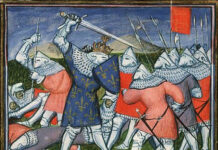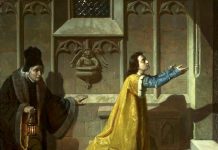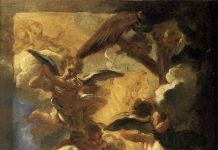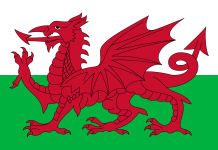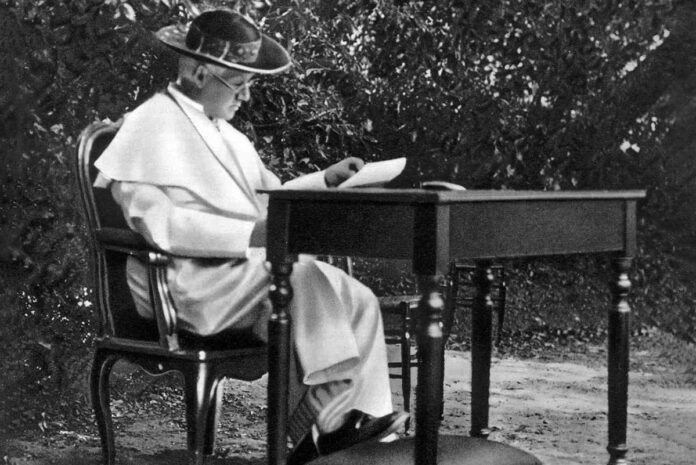
Instaruarae omnia in Christo (motto of Pope Saint Pius X)
Saint Pius X (+1914) was the first ‘peasant’ to be elected Pope in centuries, the bishops of Rome all being chosen from the Italian nobility, trained for the task from youth in elite schools, with few exceptions. Born Guiseppe Melchiorre Sarto in 1835, he grew up knowing the meaning of hard work, the value of a lira, and walking long miles over the hot roads of the Italian countryside.
Guiseppe was clearly gifted: Strong in body, handsome, pleasant, highly intelligent, he from a young age was determined to consecrate these gifts in service to God in the priesthood. He sailed through his studies, with the discipline he had acquired, his sharp mind, elevated by grace, able to see through the obfuscations of the age.
Ordained a priest on September 18th, 1858, he devoted himself to his flock unsparingly, finding time for prayer and study, especially his beloved Saint Thomas Aquinas, and Canon Law. He rebuilt churches, and founded hospitals – his care for the sick during a cholera epidemic was heroic.
His potential was recognized, and he quickly moved up the hierarchy, vicar-capitular of Treviso in 1878; bishop of Mantua in 1884; cardinal on June 12, 1893, and patriarch of Venice three days later; then, a few weeks after the death of Leo XIII on July 20, 1903, Cardinal Sarto was elected Pope on August 4, 1903 (also the soon-to-be memorial of Saint Jean Vianney, now the patron saint of priests), taking the name Pius in honour of his predecessor, Pio Nono, who had battled the forces of the world, like Pio Decimo would soon do. His motto: instaurare omnia in Christo – To restore all things in Christ.
He brought his simple ways into the papal, office, greeting people on friendly terms, carrying candy for children on the streets of Rome, offering a brief catechism lesson. His papal cross was of metal, rather than gold, and he simplified many of the ceremonies. He also rescinded the custom, amongst others, of Popes eating alone, regularly sharing his table, as was his custom growing up on his family’s farm. The ‘Pope dining alone’ custom was established by the austere and distant Urban VIII in the early 17th century, I suppose in case someone sees the Vicar of Christ in some uncompromising position, like with a piece of celery between his teeth, or spaghetti stains on his soutane. Pope Urban was the same one who condemned Galileo, but also sent the Jesuit missionaries to the New World. (Perhaps if he had shared some cannoli and a fine bottle of Chianti with the irascible scientist, things might have been smoothed over without the scandalous trial. One never knows, with the vagaries of history).
Pius was known for his holiness, patience, kindness, which shines forth even in old photographs, His eyes seem still to pierce one’s soul – what must he have been like as a confessor? Yet, for all that, he stood his ground unflinchingly for orthodoxy, with no toleration for heretics or liturgical innovators. Pius reformed the Church from the inside out, and here are just a brief list of what he accomplished:
With Sacra Tridentina and other decrees, he not only permitted, but advocated the daily reception of Holy Communion, and not just for adults, but for children, as soon as they are able to distinguish the reality of Christ’s Presence, thus removing once and for all the debilitating last vestiges of the rigorism of Jansenism:
Holy Communion is the shortest and safest way to heaven.
The renewal of Gregorian chant and polyphony at Mass, especially with his Tra le sollecitudini, one of his first promulgations, which he repeated in other writings – how much we need beautiful Church music! And how many of our current problems can be traced to a lack of such, I wonder). His words are clear:
On these grounds Gregorian Chant has always been regarded as the supreme model for sacred music, so that it is fully legitimate to lay down the following rule: the more closely a composition for church approaches in its movement, inspiration and savor the Gregorian form, the more sacred and liturgical it becomes; and the more out of harmony it is with that supreme model, the less worthy it is of the temple.
Putting paid to modernism, the most slippery and insidious of all heresies, in his encyclical Pascendi Dominici Gregis. Again, the Pope gets to the nub of the matter:
For scholastic philosophy and theology they have only ridicule and contempt. Whether it is ignorance or fear, or both, that inspires this conduct in them, certain it is that the passion for novelty is always united in them with hatred of scholasticism, and there is no surer sign that a man is on the way to Modernism than when he begins to show his dislike for this system.
A renewal of Thomism followed, continuing the work of his predecessor Leo, and an emphasis on traditional philosophical and theological studies, especially for priests.
Then, writing a Catechism, summarizing all of Christian Doctrine.
The revision of the Code of Canon Law, the first such compilation of its kind, which would see promulgation a few years after his death, in 1917. Before that, Church law was found in a multiplicity of sources, making for all sorts of complications. It is difficult to appreciate how vast this was, and how much work this took. In all, Pius promulgated sixteen encyclicals, along with numerous other decrees, addresses, homilies, speeches, not least on devotion to the Eucharist, to Mary, the saints:
Let the storm rage and the sky darken – not for that shall we be dismayed. If we trust as we should in Mary, we shall recognize in her, the Virgin Most Powerful “who with virginal foot did crush the head of the serpent.
And:
The Rosary is the most beautiful and the most rich in graces of all prayers; it is the prayer that touches most the Heart of the Mother of God…and if you wish peace to reign in your homes, recite the family Rosary.
He went so far as to claim (and I think he’s quite right):
If there were one million families praying the Rosary every day, the entire world would be saved.
As well, Pius reformed the Roman Curia, and how the Church was and would be governed. He would have had little time for much of our milquetoast Church, submitting to the state at the least sign of provocation. Or, for that matter, the toleration of rank heresy and immorality, in hierarchs and politicians, for fear of confrontation and cleaning out the Augean stables:
The greatest obstacle in the apostolate of the Church is the timidity or rather the cowardice of the faithful.
Magnanimity! Greatness of soul! Of course, in the midst of all this, and as a source of his own energy and serene courage, he kept up a strict and unwavering devotional and prayer life, and a number of miracles were attributed to his intercession even during his own lifetime. I feel some vicarious exhaustion just reading about all he accomplished.
It is said the holy Pontiff died of a broken heart when he heard of the outbreak of World War I, for, in a mystical way, he perhaps foresaw what human and societal carnage it would wreak. He was canonized by Pope Pius XII, on May 29th, 1954.
May Pope Pius intercede for us in our own fractious times, keeping the barque of Peter not just afloat, but well on course towards the eschaton. Like the Apostles in that first storm-tossed boat, and their worthy successors through the centuries, if Christ is for us, why should we be afraid?

